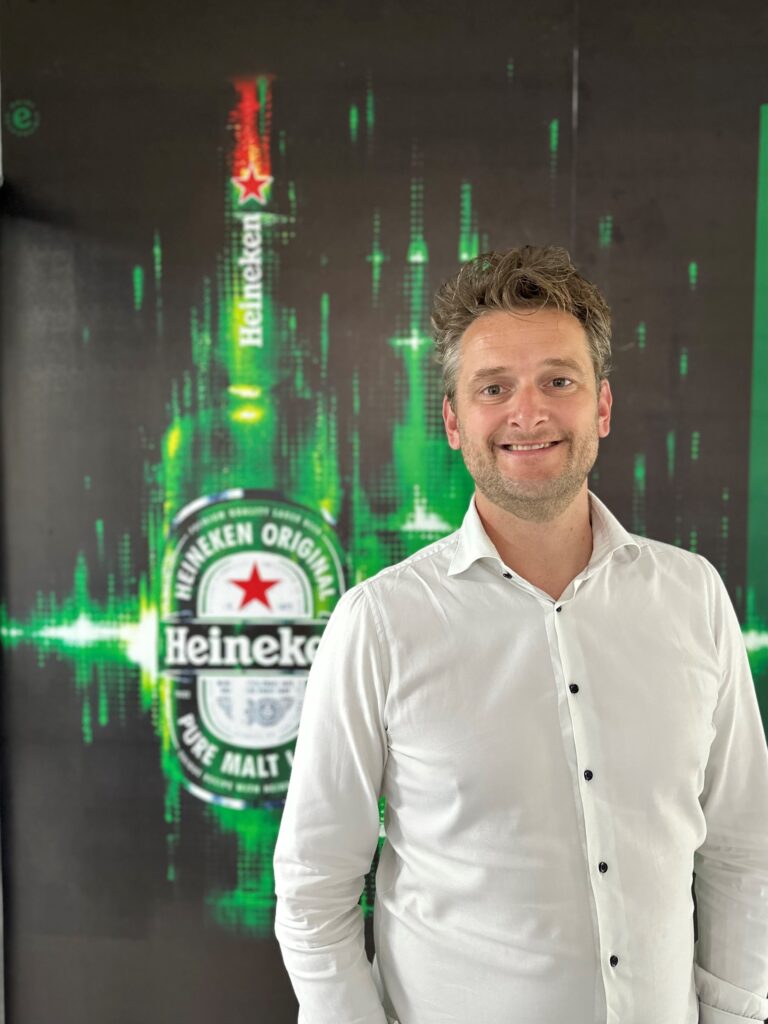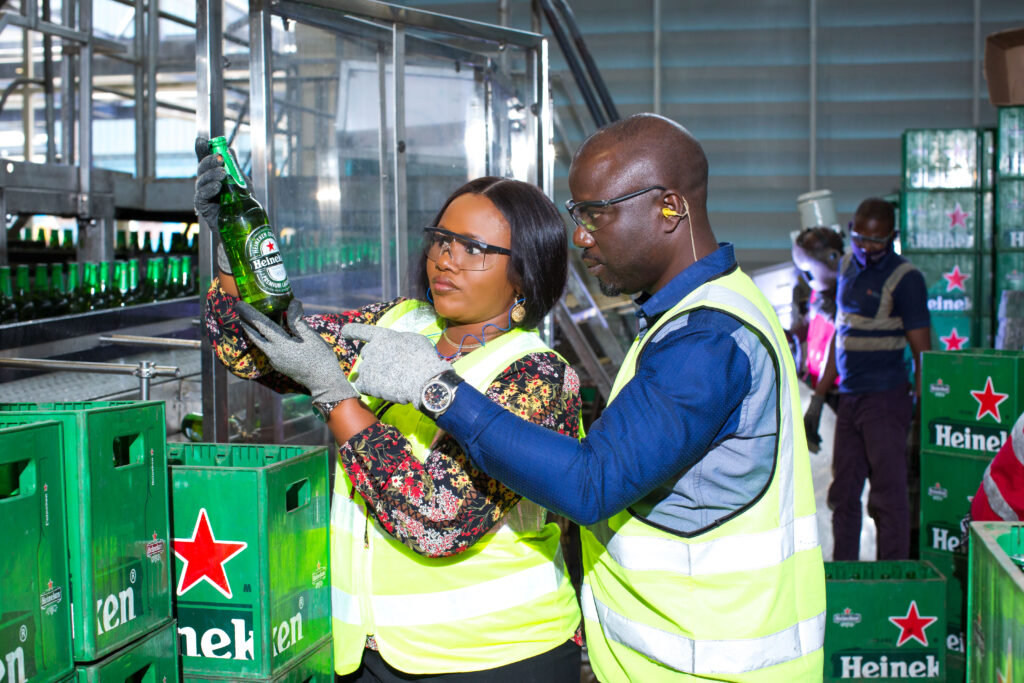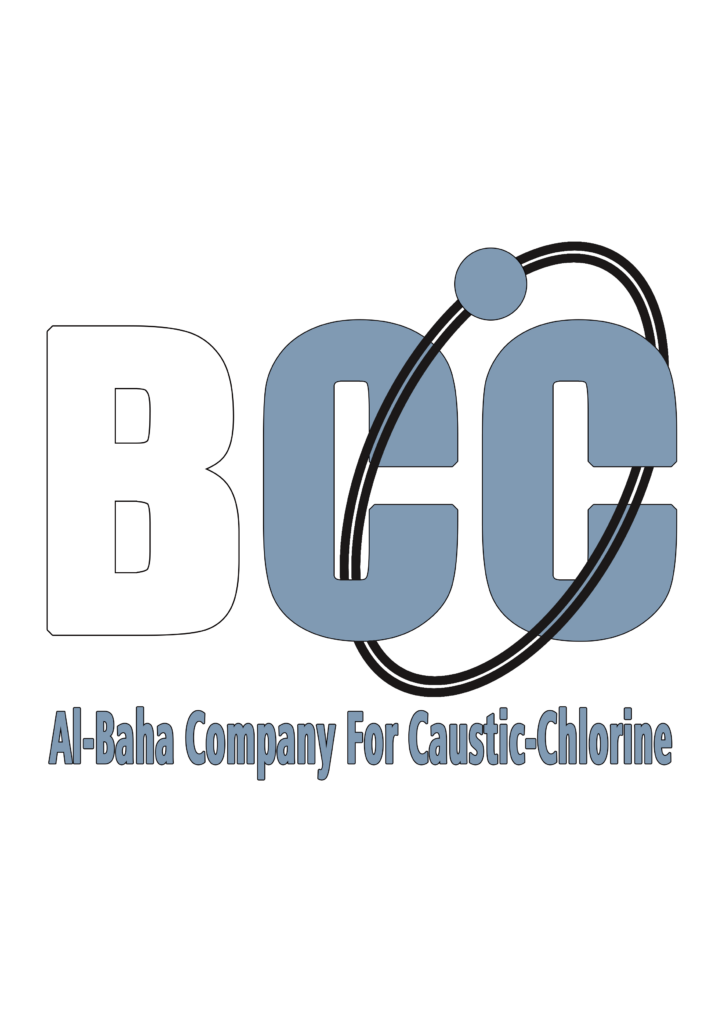HEINEKEN’s global procurement function is held up by many as blueprint for how a procurement function should look and feel in a multi-national. The key to their continued success seems to lay in the synergy between their people, processes, and HEINEKEN’s global ethos.
Niels de Gooijer has been at HEINEKEN for more than a decade. An analytical leader who has influenced numerous successful programs, it can be said that he seeks the best in himself and everyone around him on a never ending continuous improvement journey. Presently as Regional Procurement Manager for the AMEE region Niels opens up on the dynamics of his function and why more international businesses should invest in the region.
Hi Niels, what is the scope of your role?
Securing supply against competitive pricing and in line with HEINEKEN’s sustainability ambitions is a joint responsibility of global category teams and local procurement teams. In the Africa Middle East and Eastern Europe (AMEE) I am responsible for local procurement teams in 11 out of 15 markets where we produce beer and other beverages. Roughly 50-60% of the spend is sourced by the global teams and the remainder is owned by the local teams.
As regional procurement representative I am also involved in HEINEKEN’s business development in the AMEE region, including our latest acquisition in Southern Africa; Distell.
Click Below: view this content in magazine format
Your responsibility covers a dynamic region, with many cultural, political, and geographical challenges. In many markets HEINEKEN is also not a main player. This I assume does not open itself to mirrored operations? What does the structure and reporting process look like in your team?
Procurement in HEINEKEN has its global procurement team based in Amsterdam. Here global category teams define global category strategies that cascade to local markets for them to localise and help deliver. Cross OpCo sourcing opportunities are also driven by the global teams. Alongside the categories there are regional teams that functionally manage the OpCo procurement functions. Then there are teams that run commodity risk management and enable future capabilities for the procurement function.
All AMEE teams are headed by a procurement manager, with a team of varying size reporting into them. As their dotted line manager, I work with the procurement managers and their finance directors (solid line manager) to deliver the OpCo and AMEE region objectives. We do so by leveraging and localising the global category strategies and further development of local capabilities to increase functional productivity.
There are many challenges in your territory. What would you point to as the main challenges and how many of these are addressable from a HEINEKEN perspective?
Our production and sales operations in these markets vary in size and number. All these markets are highly volatile, with challenges like steep inflation, hard currency shortage, continuous changes to legislation and in some markets cultural opposition against alcohol.
Conscious development of a more domestic and regional supplier base ensures multiple supply options and reduces the need for foreign currency. This also reduces our dependency on sea-freight, resulting in supply chains with increased agility and less stock in transit. As an additional side effect this reduces and even eliminates complexities involved when transporting across borders. More sophisticated and complex ways of mitigation involve unbundling and upstream sourcing of input materials to enable local supply. This allows HEINEKEN scale to be used on sourcing of these materials as well as the inbound logistics, and then benefit from local conversion.

A great opportunity of doing business in these markets is the local people. In many countries it is only possible for few to attend higher quality education, whereas the majority of the population is less fortunate. By investing in our people, educating them on the job on professional procurement practices they often are in a strong position when working with domestic suppliers.
HEINEKEN prides itself on adding value to the communities in which it operates. A big passion for yourself and responsibility within your role revolves around empowerment. How important to you is it that as an individual and business, you not only empower and upskill your team, but also open opportunities to the wider supplier community?
I am indeed a strong believer in setting up people to use their talent and skills where it adds value and use technology, automation, and standardisation where this frees up human capacity. I use this philosophy in an attempt to elevate the capabilities of local procurement functions. This firstly benefits our business, but people that acquire skills and knowledge can take these home to educate and provide for their spouse, family, and friends. Should they at some point choose to move beyond HEINEKEN they will help other companies thrive with their unique profile with experiences gained in our global company. It does however fill me with great pride that I have supported a number of our AMEE procurement talents who have moved into positions in European OpCos and our Head office.
By working with domestic vendors or those in surrounding countries we develop them to mature their service proposition. This benefits them in more efficiency, more sustainable ways of working and the building of capabilities with their employees. Not only we as HEINEKEN benefit from this but also other customers. Personally, I’d like to see traditional industries that currently supply us from outside Africa make an effort to expand their footprint into Africa.
So your role as Regional Head of Procurement is not just about getting the best price today, it is also about empowering the right supplier for tomorrow. Often a lack of skills within the markets you operate can force your hand into looking further afield. What opportunities exist for local suppliers and how do you support supplier growth?
With our aim to mature our procurement operations, it has to be an integral part of our agenda to do the same with our supplier base. If we continue to rely on importing materials our markets remain exposed to a multitude of supply chain risks. By continuously assessing the materials and services we import, we identify opportunities we can unlock by offering HEINEKEN capabilities to suppliers. A recent example is the development of a glue supplier in one of our markets. We used to import this from European suppliers as a finished product. By supporting a local production company with one of our quality experts we enabled the vendor to blend glue with all the right characteristics for our products.
As HEINEKEN holds safety as priority number one, we require any service provider to meet our quality standards and certification criteria. In one of our markets only one welding company was certified, who happened to be owned by a European. Procurement then worked with a renowned certification agency to help train and certify other domestic welding companies so they can come and work on our sites. This does not only benefit HEINEKEN, but for sure these suppliers and any other customer who will receive qualified welding services safely.
Through these initiatives we allow domestic suppliers to make an income and extend their service offering to a wider range of companies. This stimulates local economies.
Did COVID force the hand slightly on this endeavour to bring the supplier base closer or has it always been a longer-term plan?
Covid made it a necessity to find alternative supply options, but HEINEKEN has been on a journey that prioritises social responsibility and sustainability way before Covid impacted our supply chains. Our local sourcing programme looking after Barley, Sorghum, and maize crops dates back to way before Covid came into our world and is a great example of how we seek to brew our beverages using local ingredients and package them in re-usable packaging.
Content Sponsor: BCCI
Outside of supplier development there is always a requirement to seek innovation and collaboration within the supply chain, especially when operating in dynamic markets. How successful have you been in achieving this?
By design our markets used to operate autonomous, including planning, risk management and in supplier relationship management. Through the introduction of cross-OpCo end-to-end supply (chain) planning we improved our own demand fluctuations and are better at matching supplier production plans. Now that we use tools for supplier collaboration we still have the benefits of our decentral footprint, whilst collaborating with our supplier base as a united front.
Strong collaboration exists with many of our suppliers to optimise material specifications, reduce CO2 emissions, increase security of supply and improving the conditions for employees in terms of fair wage and safety. With several of our glass bottle suppliers we work on production technologies that allow for lighter, stronger bottles. This provides more production output and lower CO2 emissions both in production as well as in logistics.
Many of our innovation efforts now target reducing the CO2 footprint of our value chain. Therefore, when I first heard about BCCI Chemicals’ 100% sustainably produced caustic soda in Jordan, we immediately organised for a meet. By using hydro- and solar powered technology they can produce caustic soda we need for cleaning our bottles and equipment in a sustainable way, contrary to many of their European competitors that rely on chemical processes and non-sustainable energy. The possibility of servicing the HEINEKEN network in AMEE offered a great opportunity for them to expand their business across borders. We are now looking at expanding BCCI supply into the Caribbean.
Procurement within HEINEKEN has excellent visibility. Procurement in many of the countries you operate does not. What can be done about this?
Several of my markets are small- to mid-size operations, where across functions a trade-off has to be made where to allocate resources. Needless to say, business starts with successful sales and producing quality products for our consumers, thus staffing these functions remains priority one. As local procurement does not have an MT seat, the function is often light staffed and aimed at making transactional procurement run smooth and compliant. Capabilities required for more tactical or strategic sourcing tend to be thin or not available at all, causing these operations to fully rely on the global sourcing teams who service 80+ markets. No doubt we are missing out on opportunities that could benefit our operations.

Where many may claim we need more resources in procurement I would argue we need to staff local procurement teams with higher educated and better skilled people. In order to do so we need to elevate job positions to be able to recruit at the right level. When these resources then act as a procurement network across geographies, I am convinced more value will come from procurement than continuing with the domestic transactional focus. Better utilising technology and data for transactional processes will support this direction. Even considering having the procurement function as a member of the MT will help the business to commercially make better decisions.
Across my markets we are already using a network way of working, where procurement managers jointly define capability development objectives. These objectives are then pursued through an agile methodology, where we learn, share, and reapply across markets. By empowering the teams to set their own priorities I continue to be surprised by their creativity, delivery, and motivation. Some results include a ‘text book’ on how to prepare for and run a supplier visit, or on how to scan domestic and surrounding markets for supply. My OpCos now also have the best e-sourcing statistics in HEINEKEN through consistent ways of working and utilising the system to its full extend.
It’s fair to say you are a strategy man. During your time with HEINEKEN you have been involved and led many projects. What is the long-term strategy for procurement in your territory? What do you foresee as the primary barriers to the advancement of the strategy? If we were to speak again in 18 months, what would you have liked to have achieved?
The development of a supplier base for raw, packaging and production materials with increased domestic and regional suppliers performing alongside our global partners I view as pivotal for sustained operations in Africa. This requires our global procurement teams to continue setting category strategies and to leverage our scale for cross-OpCo sourcing. Our global suppliers should dare to invest in the region, where HEINEKEN can reduce the risk on these by positioning itself as preferred client.
To strengthen the power of the global teams I believe in establishing a network of regional procurement talent that operates from various geographies. By leveraging talent from one market into another I am sure we can drive new sources of value, whilst growing capabilities within our OpCos and suppliers. This will also strengthen the relationship of procurement with our production and sales functions, who are in need of procurement to act as an equal business partner.
18 months from now we will see further tangible developments in localising our supplier footprint in Africa, reducing our supply risks, and supporting our journey towards becoming a more sustainable business. I’m convinced initiatives like we have with BCCI Chemicals is a first of many. AMEE procurement teams will have improved capabilities, where there is a visible shift from transactional procurement to tactical and strategic procurement. For me personally the above can only be called a success if we have visible exciting people moves from AMEE into other markets, spreading the great work we do in Africa into wider HEINEKEN.
Last but very much not least, I will be having the pleasure to join the HEINEKEN Ethiopia team as their Head of Procurement. In 18 months I will be able to brief you on all that is happening in one of HEINEKEN’s fastest growing markets.


